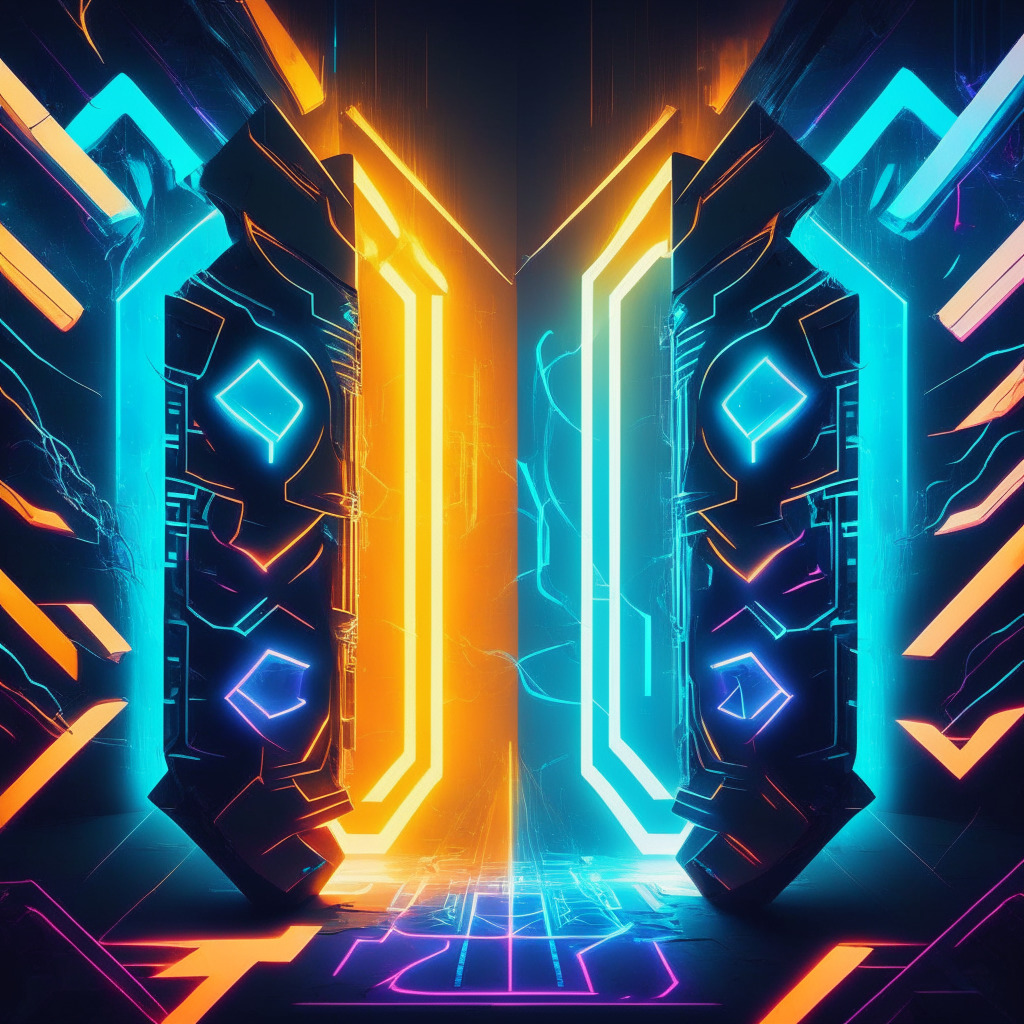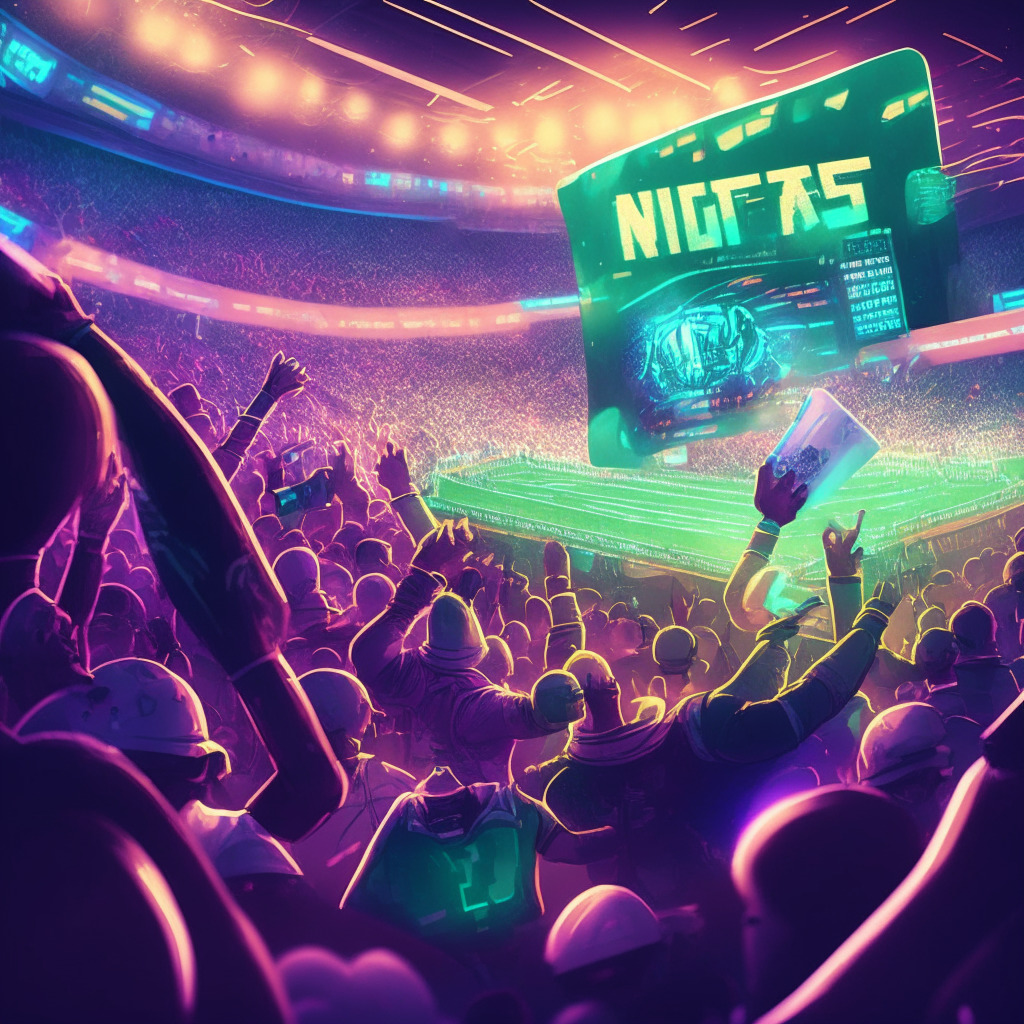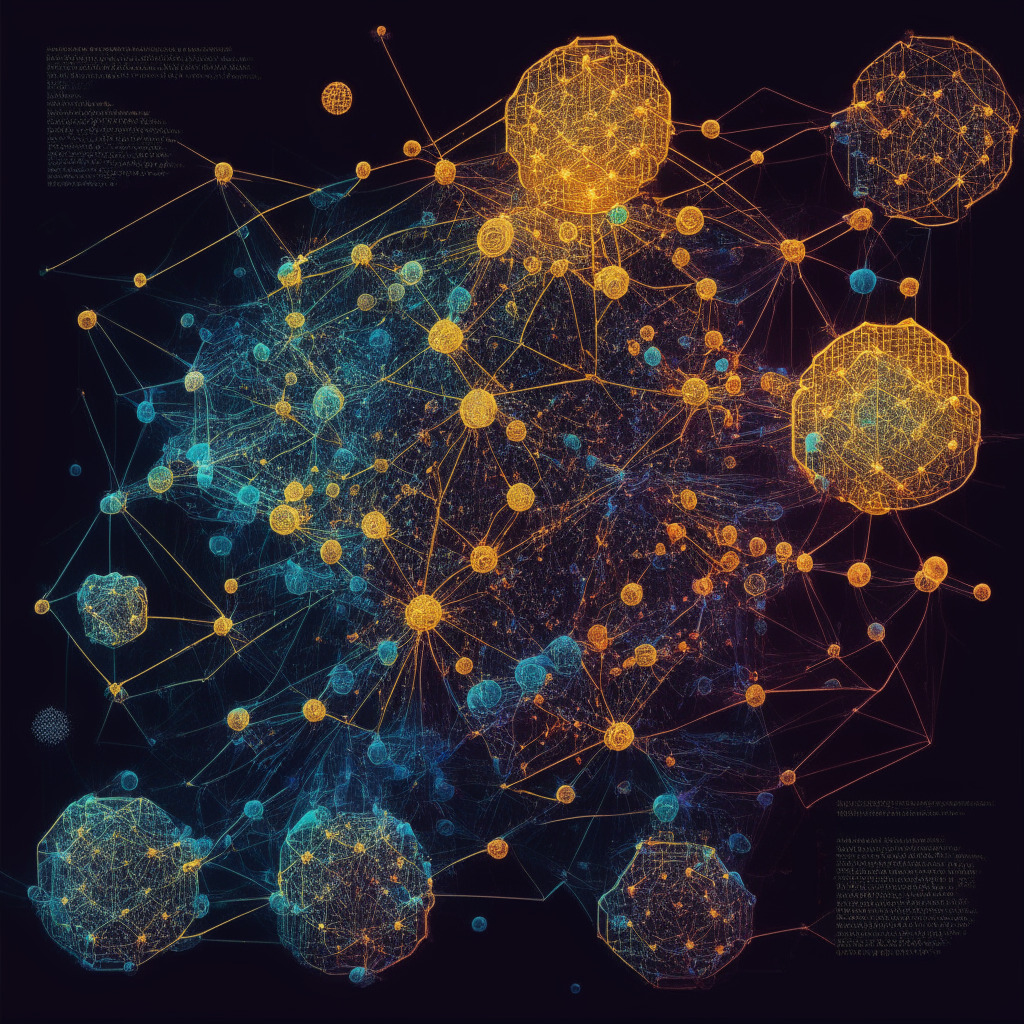Major crypto enterprises like Coinbase, Binance, and a16z are setting up their own “layer-2” blockchain networks using OP Stack, despite the belief that promising layer-2 solutions will come from “ZK rollups” and not optimistic rollup technology. However, the choice of OP Stack may be due to its ease of setup. ZK rollups, while promising, require advanced hardware and high energy consumption.
Search Results for: A16z Crypto
Breaking Boundaries with Zero Knowledge Proofs: Andreessen Horowitz’s Lasso and Jolt Projects Unveiled
Andreessen Horowitz recently unveiled two innovative open-source projects, Lasso and Jolt, centered around zero-knowledge proofs – a robust form of cryptography. These initiatives aim to enhance transaction speed, cut costs, boost privacy, and empower external developers, introducing new opportunities to scale blockchain networks.
Decoding the Andrew Horowitz Bet on ZK Proofs: Unlocking Blockchain’s Future or Unlocking Concerns?
Venture capital firm Andreessen Horowitz (a16z) is investing in the development of zero-knowledge (ZK) proofs and open-source software projects, Lasso and Jolt, aiming for scaling blockchains while preserving transaction privacy. These technological advancements may transform blockchain’s scalability and privacy, but could also introduce new vulnerabilities and challenges.
The Worldcoin Enigma: A Revolution in Identity Protocol or a Privacy Nightmare?
Worldcoin, an innovative platform created by Sam Altman, promises to make cryptographic currencies more dispersed than Bitcoin. Boasting a unique identity protocol using iris scans and AI, it aims to onboard billions of users into crypto markets. However, concerns about privacy, tokenomics, and regulatory challenges have arisen, prompting questions about the future of such revolutionary blockchain projects.
Paradigm Capital’s Massive MKR Transfers: Calculated Moves or Market Disruption?
“Paradigm Capital transfers 3000 MKR tokens into an OTC wallet, potentially signaling a strategy for greater liquidity amid anticipated price instability. This move, mirroring a similar one by Andreessen Horowitz, may disrupt market balance or incite reactionary cascades from other market players.”
Andreessen Horowitz Cashes In on MakerDAO Tokens Amidst Decentralization Debate
Andreessen Horowitz (a16z), venture capital giant, has reportedly sold some of its investments in the crypto lender MakerDAO’s MKR governance tokens. Tracking by Ethereum blockchain Etherscan revealed $7 million of MKR being moved from a16z’s crypto wallet. It appears that the value of these tokens peaked last Friday, following a new token buyback scheme, prompting the sale. This sale comes despite a16z holding a significant amount of MKR, and amidst a major overhaul of the MakerDAO protocol.
Unveiling Worldcoin’s WLD Token: Landmark Success or Regulatory Nightmare?
Sam Altman’s crypto venture, Worldcoin, plans to unveil its WLD token and primary network source. Their recent $115 million Series C funding showcases the need for proof of personhood for genuine privacy and decentralization in the growing AI-centric society.
Ripple’s Strategic Move to UK: Promising Regulatory Clarity or Risky New Challenge?
“Ripple is seeking to establish a firm footing in the UK, applying for registration as a crypto asset firm with the UK’s Financial Conduct Authority. This move comes after Ripple’s partial legal victory in the US concerning the classification of its XRP token. However, potential UK legislation targeting illegal crypto usage poses new challenges.”
Web3 Music Platform Strikes a $20M Chord: Blockchain Reshaping the Music Industry
“Sound, a Web3 music platform, raises $20 million for its innovative solution in reshaping the music industry using blockchain technology. It enables music creators to mint their songs as NFTs and sell them directly to fans, eliminating intermediaries and ensuring 100% revenue retention for artists. With active backing from notable music industry figures, this initiative marks a significant stride in blockchain adoption in entertainment.”
Eliminating Virtual Hazards: AI-Enhanced NFTs Introduce Parental Controls for Safer Interactions
OnChain Studios and NFT company Cryptoys are merging artificial intelligence and non-fungible tokens to form a child-friendly AI chatbot – ChatGuardian. This digital development is designed to enhance children’s interaction with their NFT characters while ensuring a safe environment.
NFL Rivals Success: Exploring NFT Integration in Mainstream Gaming and Future Implications
NFL Rivals, a free-to-play game from Mythical Games, stands out with its integration of Non-Fungible Tokens (NFTs) as player cards. Garnering over a million downloads and reaching top spots in app stores, the game successfully introduces users to Web3 and NFT concepts, highlighting the potential of NFT integration in mainstream games and shaping the future of crypto gaming.
Gensyn Secures $43M: Decentralizing AI and Leveling the Playing Field for Developers
Gensyn, a UK-based provider of blockchain-powered computing resources for AI platforms, secures $43 million in Series A funding led by venture capital firm a16z. Gensyn aims to level the playing field by allowing developers to build AI systems on smaller data centers and personal gaming computers, fostering accessibility and connecting underutilized hardware globally.
Argus Secures $10M Seed Round and Launches World Engine: A New Era for Web3 Gaming
Haun Ventures leads a $10 million seed round for Web3 gaming studio Argus, which announces the launch of the World Engine, a blockchain-gaming software developer kit (SDK). Aimed at empowering developers to create unique Web3 gaming ecosystems, the World Engine and Argus’ in-house content game studio provide the tools needed for groundbreaking Web3 gaming.
Ethereum Superchain: The Optimism Bedrock Upgrade and Its Impact on Blockchain Landscape
Optimism’s Bedrock upgrade aims to improve Ethereum’s usability by reducing gas fees by 40% and deposit-confirmation times by 90%. This significant step towards a “Superchain” could revolutionize the blockchain landscape, providing a more secure and efficient platform for transactions, while facing intense competition from other layer 2 solutions like Arbitrum and ZK Rollups.
Regulating DeFi Applications: ConsenSys Proposal for UK Authorities and Its Challenges
ConsenSys, an Ethereum development studio, suggests that the UK government should focus on regulating crypto applications rather than blockchain protocols. This targeted approach aligns with Web2 internet regulation, addressing potential risks and specific activities without imposing limitations on blockchain infrastructure. The UK Treasury will review received feedback to shape its regulatory response, balancing safety and innovation in the DeFi and cryptocurrency industry.
Massive Optimism Token Unlock: Evaluating Market Impact and Future Prospects
The upcoming unlocking of 386 million Optimism (OP) tokens, worth $587 million, on May 31 raises concerns of downward price pressure due to the potential 100% increase in circulating supply. Early-stage investors, including Paradigm and IDEO, currently hold 10,000% gains, which may contribute to significant sell pressure on the OP token.
Ethereum Anonymity Boost: Andreessen Horowitz’s Cicada Library Unlocks Anonymous Voting Pros and Cons
Andreessen Horowitz’s venture capital fund has released Cicada, a Solidity library that significantly advances anonymous voting on the Ethereum platform by preventing individual voter choices from being disclosed before polling ends. Combining Cicada with zero-knowledge group membership systems enhances voter anonymity, while addressing challenges in encoding blockchain votes, paving the way for more democratic voting systems within decentralized autonomous organizations (DAOs).
Worldcoin’s Iris Scanning: Ensuring Uniqueness or Compromising Privacy?
OpenAI CEO Sam Altman has secured $115 million in Series C funding for Worldcoin, a cryptocurrency project focused on the Worldcoin token and decentralized World ID. The project aims to distribute tokens based on individuals’ unique statuses, using iris scans for identity verification. However, privacy concerns and potential safety risks have drawn criticism.
NFTs in Gaming: The Delicate Balance Between Unprecedented Monetization & Over-commercialization
Azra Games is integrating Non-Fungible Tokens (NFTs) into gaming, aiming to create synergy between gaming experiences and digital assets. This allows for ownership, trading, and monetization of in-game assets, but also raises concerns about overly commercializing the gaming experience.
Record-Breaking $15M Bug Bounty: LayerZero Outshines MakerDAO in Quest for Security
LayerZero Labs announces a record-breaking $15 million bug bounty program in collaboration with crypto-focused bug bounty platform Immunefi. This initiative aims to incentivize white hat hackers to identify vulnerabilities in the LayerZero protocol, prioritizing security, and setting a positive example for the crypto industry.
Ethereum’s Bedrock Hard Fork: Optimism’s Game Changer or Arbitrum’s Continued Dominance?
The Ethereum blockchain will undergo the Bedrock hard fork on June 6 as Optimism, a layer 2 scaling solution, introduces a major upgrade for improved modularity, simplicity, and Ethereum equivalence. This is expected to increase performance and functionality, while fueling positive market sentiment for Optimism’s Layer 2 network.
Worldcoin’s $100M Investment: Financial Inclusion vs Biometric Data Privacy Concerns
Sam Altman’s Worldcoin, an ambitious crypto project aiming for financial inclusion and universal basic income implementation, is near securing $100 million in investments. However, concerns regarding data privacy and ethical implications of collecting biometric information raise questions on striking a balance between goals and potential risks.
NYC’s Blockchain Hub: Navigating the Future, Addressing Challenges & Shaping the Industry
133 W 19th St., New York, has become a hub for blockchain enthusiasts and startups, facilitating discussions on the potential of blockchain technology, concerns like security and privacy, and regulatory challenges. Hosting seminars, workshops, and panel discussions, this symbolic location represents the dynamic shift towards exploring blockchain’s potential in a digitally-reliant world.
SUI’s Rocky Start: Analyzing the Sharp Decline and Future Potential in New Blockchain Project
SUI has experienced a 70% price drop since its market debut, but maintains a 1,200% gain. Traders perceive Sui, a new layer-one blockchain project, as scalable, handling 300k transactions per second. Concerns exist surrounding SUI’s supply schedule, with potential to influence price fluctuations.























